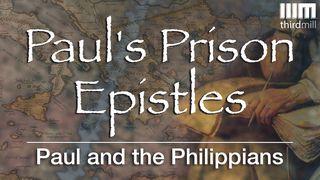Plan info
The Apostles’ Creed: The ChurchSample

Holiness: Isaiah 6:3-7
In Scripture, the concept of holiness is complex. But it is fair to say that when the Bible refers to someone or something as holy, the most basic idea is that the subject is morally pure, and in a related sense, “holy” can also describe people and things that are set apart for use in special service to God.
Let’s look at both aspects of this definition, beginning with being morally pure. When we say that someone or something is morally pure, we mean that it is free from sin and corruption. In the sense of moral purity, holiness is rooted in God’s character. Scripture describes God as the Holy One in many places, such as in 2 Kings 19:22, Proverbs 9:10, Isaiah 30:11-15, and 1 John 2:20.
It’s not just that God is bigger than we are; it’s not just that God is infinite and we are finite, but that He is morally "other" than we are. In Him there is no darkness or shifting shadow. In Him there is no evil impulse or inclination to do what is wrong. In Him is not the slightest hint or desire to do evil. – Dr. J. Ligon Duncan III
Because God is utterly holy, anything sinful that enters His immediate presence is subject to His judgment and wrath. We see this in places like 1 Samuel 6:20, 2 Kings 24:3, and Hebrews 12:14. Although God may withhold judgment for a while, His holy presence will ultimately destroy those whose sin is not covered. As a result, anyone or anything that is to enter His presence must first be made holy. For instance, consider Isaiah’s words in Isaiah 6:3-7:
> [The seraphim] were calling to one another: "Holy, holy, holy is the Lord Almighty” ... "Woe to me!" I cried. "I am ruined! For I am a man of unclean lips, and I live among a people of unclean lips, and my eyes have seen the King, the Lord Almighty." Then one of the seraphs flew to me with a live coal in his hand, which he had taken with tongs from the altar. With it he touched my mouth and said ... "[Y]our guilt is taken away and your sin atoned for." (Isaiah 6:3-7).
In this passage, Isaiah feared that he would be destroyed in the special presence of the Holy Lord because of his guilt or sin. So, the seraph, one of God’s attending angels, cleansed Isaiah’s sin with a hot coal taken from God’s holy altar. By this cleansing, Isaiah was purified from sin — he was made holy. And because of his new holiness, he was able to stand in the Lord’s presence without falling under judgment.
As we see in Isaiah 6, God’s holiness is one of His communicable attributes — an attribute that characterizes Him perfectly and completely, but that can also characterize His creatures in finite ways. The communicable nature of holiness lies behind the many biblical commands for believers to be holy, as in Ephesians 1:4, Hebrews 12:14, and 1 Peter 1:15-16. We are to strive to be as morally pure as God is. Of course, in our own strength we can never succeed in this attempt. But Christ Himself has perfect moral purity. And when we are in Him, His righteousness is credited to us, and we are counted as being absolutely pure, completely free from sin and corruption.
The second aspect of our definition of the word holy is that it describes people and things that are set apart for use in special service to God. In this sense, things can be holy even if they are not morally pure. As just one example, consider what Paul wrote in 1 Corinthians 7:14:
> The unbelieving husband is made holy through his wife, and the unbelieving wife is made holy through her husband (1 Corinthians 7:14, NRSV).
Here, Paul said that when a believer is married to an unbeliever, the unbeliever is made holy, or as other translations put it, the unbeliever is “sanctified.” The idea is that the unbeliever is identified with God and made useful for his service — even though the unbeliever has not been morally purified by God in Christ.
Scripture
About this Plan

This reading plan looks at the divine sanction of the church, and at the facts that the church is holy, catholic or universal, and a communion.









